Date published: 12 December 2023
Japan is not just a treasure trove of exquisite cuisine and landscapes but also a haven for those seeking relaxation in its renowned hot springs. Winter trips to these warm sanctuaries offer a serene retreat for the soul and body, making it an ideal leisure activity for all ages.
Drawing inspiration from “YukoYuko,” a magazine cherished by the mature demographic for its travel and onsen recommendations, we dive into the top onsen destinations in Japan. Whether planning a family trip to Tokyo or seeking a tranquil escape, nearby hot springs offer both convenience and a wealth of surrounding attractions.
(Main image: PIXTA)
Explanation of Japan’s Popular Hot Spring Rankings in Senior Magazines
YukoYuko, a popular Japanese magazine catering to the senior demographic, specializes in travel and hot spring accommodations. It compiles its hot spring rankings based on surveys from its mature readership, highlighting the most popular onsen destinations visited through “YukoYuko” services.
Spanning from Hokkaido to Kyushu and divided into nine regions, this list is comprehensive. However, in this article, we’ll focus on three areas around Kanto. If you’re planning a trip to Japan with your parents, consider using this ranking to plan your itinerary. Starting from Tokyo not only offers convenience but also puts numerous popular attractions within reach, ensuring your parents will have plenty of good things to say about your trip-planning skills!
Easy Onsen Escapes Near Tokyo – North Kanto Region
Ibaraki, Tochigi, and Gunma, collectively known as the northern Kanto trio, are beloved for their scenic beauty, World Heritage sites, distinctive cuisine, and hot springs. Their proximity to Tokyo and convenient transportation make them popular choices for visitors to the capital. However, in this ranking, Gunma is categorized under the Shin’etsu region and will be discussed separately later on. Ibaraki’s Hitachi Seaside Park, Oarai Isosaki Shrine; and Tochigi’s Nikko National Park, Ashikaga Flower Park are among the well-known attractions suitable for all ages.
First Place: Unbeatable Popularity – Kinugawa Onsen
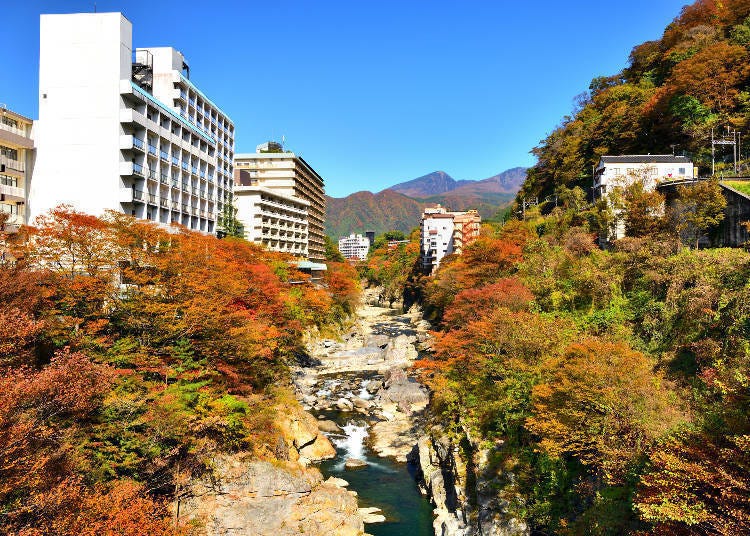
(Photo: PIXTA)
Kinugawa Onsen in Tochigi Prefecture, consistently ranked as the top destination in the YukoYuko Northern Kanto region, is a favorite due to its proximity to Tokyo and accessible transportation, with the quickest train taking about 2 hours. Alongside the Kinugawa River, a variety of large hotels and onsen ryokans are available, allowing guests to soak in open-air baths while enjoying the valley’s stunning seasonal scenery.
The hot spring water at Kinugawa Onsen is alkaline simple spring water, historically sought after for its supposed burn-healing properties, earning it the reputation in Japan as the go-to place for treating burns. Its therapeutic benefits are particularly noted for beautifying skin, easing nerve pain, muscle soreness, joint pain, stiff shoulders, and chronic digestive diseases.
Staying a night or two with your parents can be a perfect way to unwind and relieve the stress and fatigue of daily life. However, it’s worth noting that Kinugawa Onsen can get busier during holiday seasons, so it’s advisable to book your hotel in advance!
Nearby attractions include Nikko Toshogu Shrine, Lake Chuzenji, and Ryuokyo Canyon.
Recommended Top-Rated Hotels
Second Place: Diverse Spring Qualities for Radiant Wellness – Shiobara Onsen
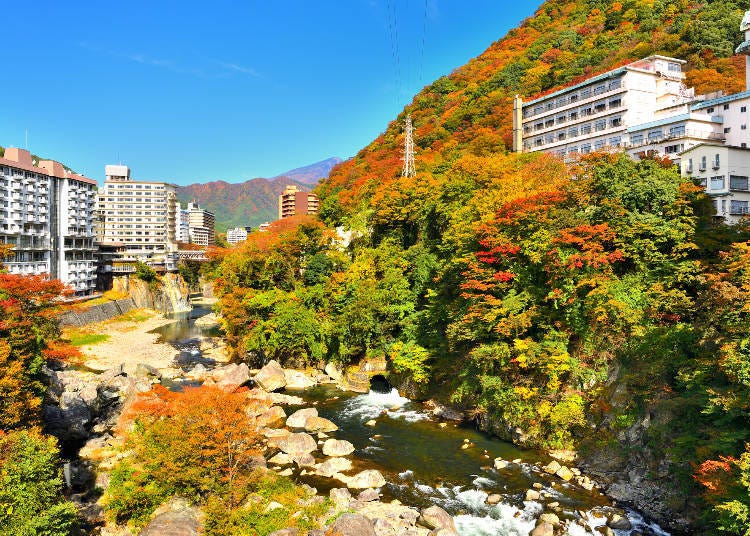
(Photo: PIXTA)
Shiobara Onsen, located in the northern part of Tochigi Prefecture, spans the vast Nasu Highlands and follows the course of the Houki River through the mountains. This onsen area is comprised of 11 districts and boasts a history of 1200 years. The journey from Tokyo involves a train ride plus a bus, totaling about 2.5 hours.
Shiobara Onsen is home to a variety of spring types, including saline springs, sulfur springs, acidic springs, and simple springs, each displaying different colors and properties, ensuring visitors can find the perfect onsen to suit their preferences. Moreover, many ryokans in the Shiobara Onsen area feature springs rich in metasilicic acid, a natural moisturizing element that promotes skin metabolism for smoother skin. Surrounded by numerous attractions, a stay here offers more than just onsen relaxation but also the chance to enjoy the stunning scenery.
Nearby attractions include the Nasu Highlands, Ryuka Waterfall, and Nanairo Suspension Bridge.
Recommended Top-Rated Hotels
Third Place: Rich History and Legendary Tales – Nasu Onsen
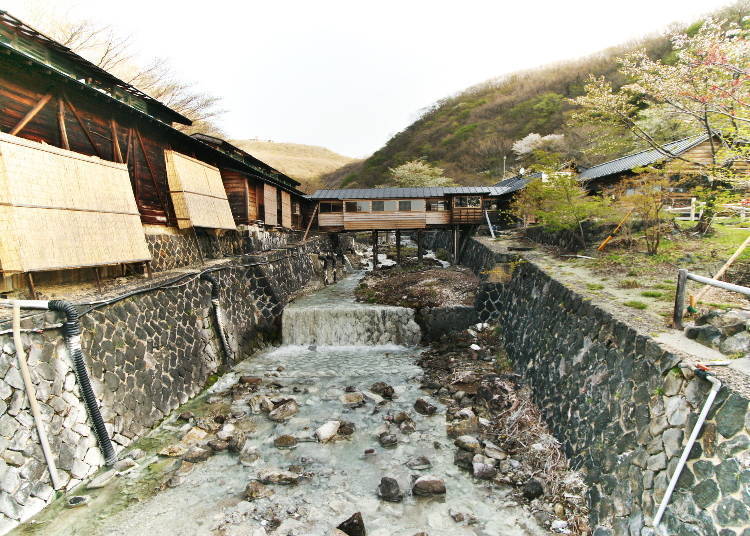
(Photo: PIXTA)
Nasu Onsen is nestled on the eastern slopes of Mount Nasu in Tochigi Prefecture, surrounded by lush natural beauty. Reaching there from Tokyo requires a train ride followed by a bus transfer, with the total journey taking about 2.5 hours.
The long history of Nasu Onsen is dotted with legends: one tells of an injured white deer that healed after soaking in the hot springs, known as “Deer’s Bath”; another recounts how Mr. Kobayashi Sahide rediscovered Benten Onsen in 1884 after reportedly being directed to the spring in a dream by the goddess Benzaiten, who told him that her statue was buried there and asked him to reveal it to the world. Each legend adds a mystical charm to the hot springs here.
Nearby attractions include the Nasu Imperial Villa and Nasu Heisei-no-Mori Forest.
Recommended Top-Rated Hotels
Expansive Ocean Views All Around – Kanto Region
The Kanto region, comprising Ibaraki, Tochigi, Gunma, Saitama, Chiba, Tokyo, and Kanagawa Prefectures, lies in the central part of Japan’s Honshu Island, bordering the Pacific Ocean. Famous attractions in Kanto include Asakusa and Tokyo Tower in Tokyo; Kamakura and Hakone in Kanagawa; Mt. Nokogiri and the Kominato Railway in Chiba; and Kawagoe and Chichibu in Saitama, to name just a few, offering endless entertainment. While Shizuoka Prefecture isn’t part of the Kanto region, it serves as a bridge between Kanto and the Kansai regions. Just about 40 minutes from downtown Tokyo by Shinkansen, Shizuoka is home to magnificent sights such as Mount Fuji and the Izu Peninsula, making it a favorite destination among tourists.
First Place: Unparalleled Seascape and Modern Elegance – Atami Onsen
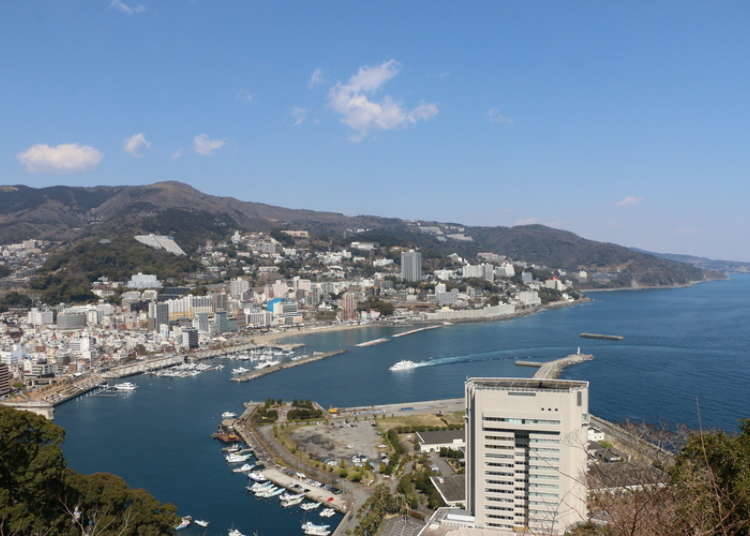
(Photo: LIVE JAPAN article #a0005216)
Historically, the Ito Onsen often dominated the hot spring scene in the Kanto area, but this year, Atami Onsen in Shizuoka Prefecture has taken the lead, claiming the top spot. Atami Onsen, beloved by Tokugawa Ieyasu, boasts a history of about a thousand years and has been a tourist destination for around two centuries. The streets still reflect the cultural charm of the Meiji and Showa eras, offering endless scenic beauty. Even better, it’s incredibly accessible from Tokyo, with just a 45-minute Shinkansen ride.
Atami’s hot springs include a variety of waters, such as sulfate springs and simple springs (including alkaline ones), known for enhancing metabolism and regulating the autonomic nervous system.
While it’s easy to make a day trip from Tokyo, staying overnight to fully appreciate this beautiful seaside town, with its mix of old and new, is highly recommended.
Nearby attractions include Atami Castle, Kinomiya Shrine, and Kiunkaku.
Recommended Top-Rated Hotels
Second Place: Brilliant Fusion of Culture and Seascape – Ito Onsen
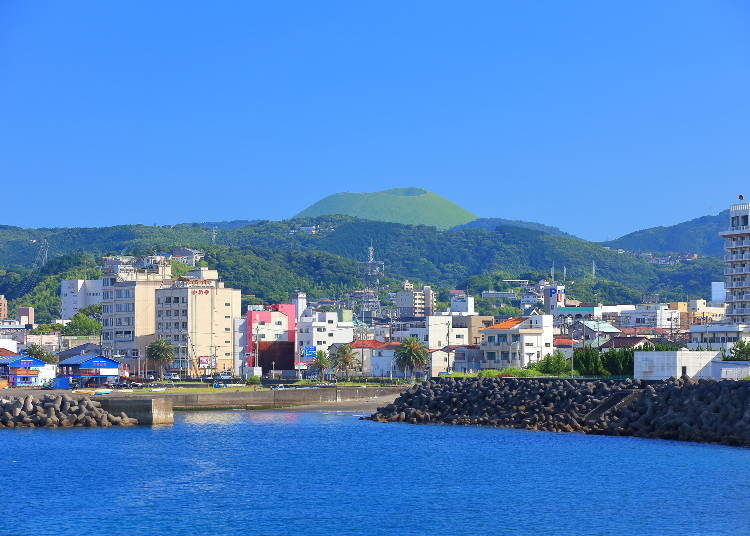
(Photo: PIXTA)
Ito Onsen, located on the Izu Peninsula in Shizuoka Prefecture, is Japan’s third-largest source of hot springs. Positioned along the coast of Sagami Bay, it’s also a day-trip destination from Tokyo, reachable by train in about 2 hours. For those without overnight plans, there are 10 public baths available for just 250 yen, allowing for a delightful onsen experience. Additionally, numerous interesting museums big and small pepper the area, offering a perfect side activity to your hot spring visit if time permits.
The waters of Ito Onsen are primarily simple springs, with some chloride springs (saline springs) available, offering relief for symptoms like cold hands and feet, and dry skin.
Nearby attractions include Matsukawa Walkway and Kinosaki Beach.
Recommended Top-Rated Hotels
Third Place: Optimal Choice for Healing and Health – Yugawara Onsen
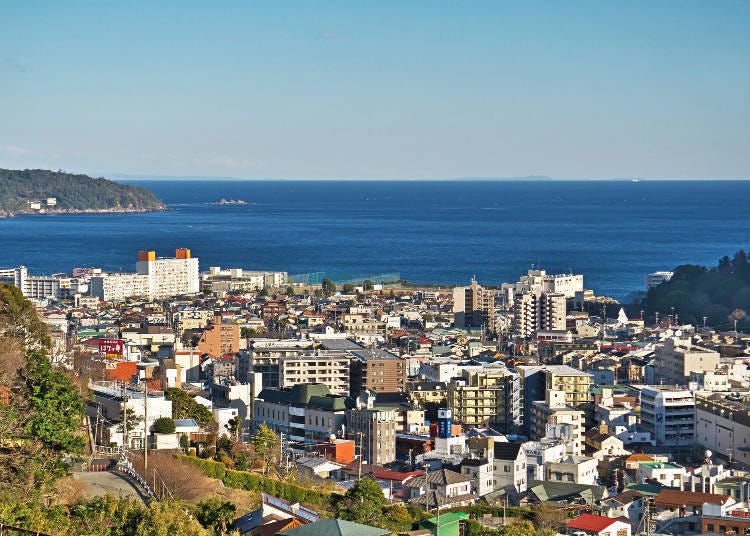
(Photo: PIXTA)
Traveling from the heart of Tokyo to Yugawara Onsen in Kanagawa Prefecture is both convenient and quick. By taking the Shinkansen and then a train, you can arrive in as little as 1 hour. Its proximity to the coast means the seafood here is exceptionally fresh, making it an ideal spot to spend the day. Yugawara Onsen has long been renowned as a therapeutic hot spring, known for warming the body from the inside out, preventing chilliness, and boosting bodily functions. The water quality is generally categorized into three types: chloride springs, simple hot springs, and sulfate springs, all of which are also known for their skin-beautifying properties.
Nearby attractions include Yugawara Art Museum, Goso Shrine, and Manyo Park.
Recommended Top-Rated Hotels
Magnificent Mountain Scenery – The Charming Shinshu and Echigo Regions
The Shin’etsu region, historically known as the combined areas of Kozuke (now Gunma Prefecture), Shinano (now Nagano Prefecture), and Echigo (now Niigata Prefecture), is filled with mesmerizing destinations. From Gunma’s Oze National Park and Akagi Fen, Nagano’s Kamikochi and Karuizawa, to Niigata’s Sado Island and Kiyotsu Gorge, each place is a testament to the area’s natural beauty. The Shin’etsu region enjoys a long winter season, making it perfect for skiing and hot spring bathing. Additionally, it’s renowned for its agricultural produce, including rice, grapes, pears, and strawberries, offering a feast of flavors all year round. Whenever you visit, the Shin’etsu region promises a satisfying experience for both the body and soul.
First Place: The Unbeaten Champion of Famous Hot Springs – Kusatsu Onsen
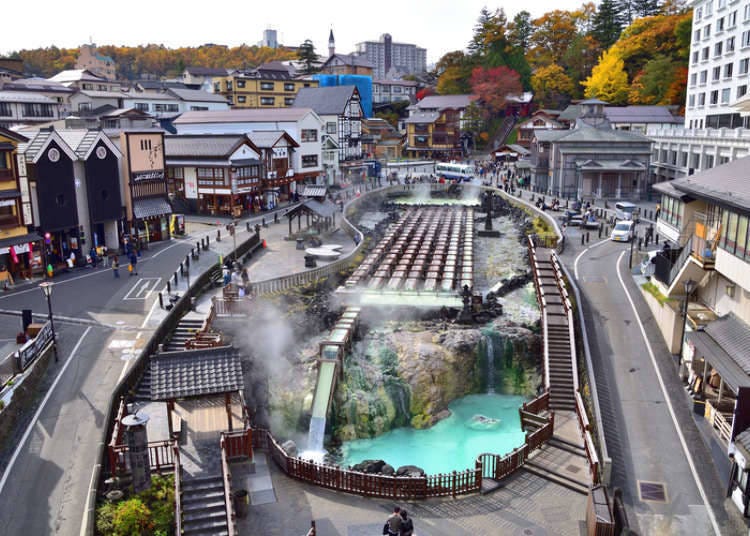
(Photo: LIVE JAPAN article #a0005172)
Kusatsu Onsen in Gunma Prefecture, renowned as one of the finest hot springs globally, undoubtedly ranks as Japan’s most popular onsen destination. A train ride from Tokyo followed by a bus transfer can get you there in approximately 2.5 hours. It has been voted number one among Japan’s 3,000 onsen areas for twenty consecutive years. A unique feature of Kusatsu Onsen is the “Yumomi” method, which cools down the hot spring water without diluting its mineral content and therapeutic properties. This is performed by women using long boards to stir the water while singing Kusatsu folk songs, serving both to cool the water and as a pre-bath warm-up for bathers.
The waters of Kusatsu Onsen are highly acidic, possessing strong antibacterial properties, and are said to effectively relieve cuts, burns, nerve pain, and more. There’s even a local folk song that claims, “It can cure everything but heartache!” With many attractions nearby, spending a night in Kusatsu Onsen and exploring the area is highly recommended.
Nearby attractions include Yubatake, Yumomi Performance at Netsunoyu, and Nishi no Kawara Park.
Recommended Top-Rated Hotels
Second Place: Stepping Into the Snow Country – Echigo-Yuzawa Onsen
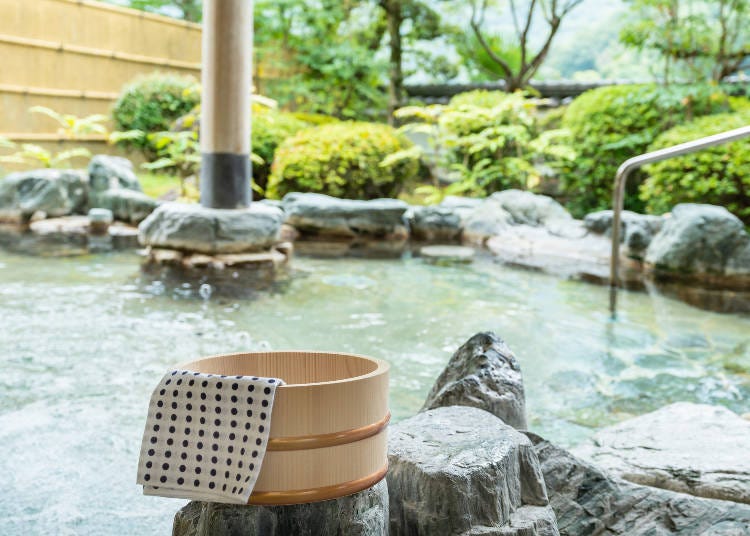
Echigo-Yuzawa Onsen in Niigata Prefecture, which ranked third in last year’s rankings, has climbed to second place this year. Renowned as a ski resort destination, its 900-year-old hot springs are not to be overlooked. A Shinkansen ride from Tokyo takes just over an hour.
The area also served as the backdrop for Yasunari Kawabata’s Nobel Prize-winning novel “Snow Country,” experiencing long periods of snowfall each year. Soaking in an onsen amidst falling snow is a truly unique experience. The waters of Echigo-Yuzawa Onsen are mildly alkaline, with the spring types mainly being chloride, simple, and sulfate springs, offering relief for cuts, cold limbs, insomnia, and more.
The region’s natural beauty and seasonal activities ensure a memorable visit any time of the year. Remember to book at least a night’s stay to fully immerse yourself in the local ambiance!
Nearby attractions include Mt. Naeba, Echigo Sake Museum, and various ski resorts.
Recommended Top-Rated Hotels
Third Place: The Open-Air Onsen Above the Clouds – Manza Onsen
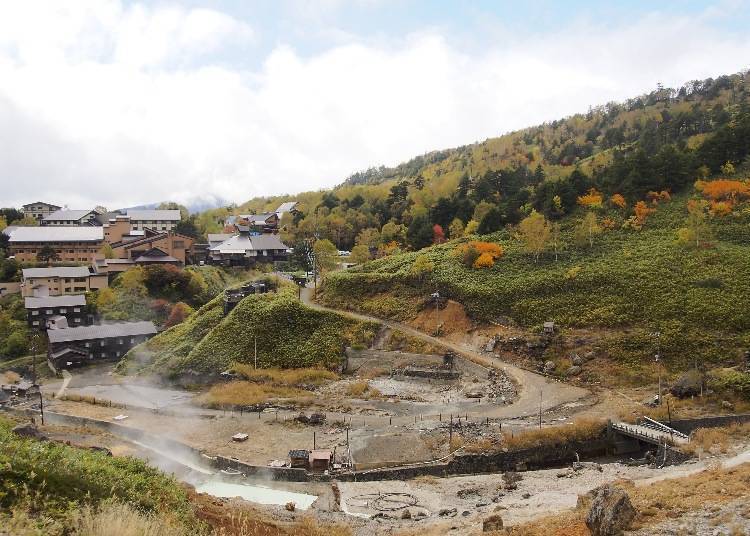
(Photo: LIVE JAPAN article #a0005220)
Manza Onsen, located at an elevation of 1,800 meters within the Joshin’etsu Kogen National Park in Gunma Prefecture, is dubbed the “hot spring in the clouds” in Japan. While it may not be as bustling as Kusatsu Onsen, also in Gunma, its serene natural beauty continues to draw enthusiasts. A journey from Tokyo involves a Shinkansen ride followed by a bus transfer, totaling under 3 hours. The acidic sulfur spring here, known for its high sulfur content, is beneficial for the skin. Additionally, it offers relief for conditions like diabetes, frozen shoulder, nerve pain, and joint pain.
Nearby attractions include Mt. Asama and Onioshidashi Park, Kusatsu Onsen, and various ski resorts.
Recommended Top-Rated Hotels
This introduction focuses on popular onsen destinations not too far from Tokyo, easily accessible for a quick getaway. After a packed urban adventure, consider taking a trip to these distinctive hot springs with your parents. It’s a wonderful way to immerse yourselves in Japan’s unique onsen culture, rejuvenate, and make your parents look forward to future travels even more!
(*Ranking Source: Accommodation Magazine “YukoYuko” via PR Times)
Translated by Lí Tiāu-pîng
*This information is from the time of this article’s publication.
*Prices and options mentioned are subject to change.
*Unless stated otherwise, all prices include tax.

















 #pushpa2
#pushpa2


Discussion about this post